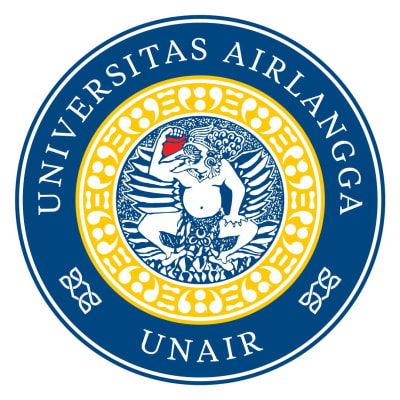
Doctor of Economics
University of Airlangga

Key Information
Campus location
Surabaya, Indonesia
Languages
English
Study format
Distance Learning, On-Campus
Duration
3 years
Pace
Full time
Tuition fees
IDR 12,500,000 / per semester *
Application deadline
Request info
Earliest start date
Request info
* Indonesian Applicants Education Fee; Admission Fee: 15000000 IDR; Matriculation Fee: 5000000 IDR. International Applicants Education Fee: 25000000 IDR; Admission Fee: 35000000 IDR; Matriculation Fee: 12500000 IDR
Introduction
Welcome to Doctoral Program in Economics, Faculty of Economics and Business (FEB) Universitas Airlangga
Today, public attention at the national, regional, and international levels on the discipline of economics is getting bigger. Most elements in society try to seek knowledge and information about the development of an economy and its impact due to the increasingly integrated global economy.
This trend requires academics, industry, government, and parliament at various levels to not only be able to analyze economic information or data but also to have adequate knowledge to be able to see the increasingly complex relationships of various economic variables. Doctoral Program in Economics Universitas Airlangga offers the best prospective students to gain up-to-date knowledge and analytical skills on various issues in the field of economics.
Doctoral Program in Economics FEB Unair is one of the strengths of Universitas Airlangga in producing graduates with the main characteristics of having leadership character and a strong commitment to change and improvement. This program is expected to be a major contributor in producing quality research so that it plays a role in the development of science and development. The high contribution of this program reflects the quality of the lecturers, researchers, and students who become stakeholders important in the educational process. Let's join us, Doctoral Program in Economics FEB Unair.
Purpose Of The Doctoral Study Program Of Economic Science FEB Unair
- Organizing educational programs that are able to encourage and facilitate students to have a high academic capacity are professional, innovative, and have competitiveness.
- Organizing and developing study programs that are professional and oriented to the satisfaction of internal and external stakeholders.
- Creating a conducive academic atmosphere in learning and research so that it can support student success in studies by upholding academic values and ethics.
Gallery
Curriculum
Curriculum
Curriculum structure Doctoral Program in Economics consists of two main components, namely a theoretical component that must be taken through lectures with a load of 18 Semester Credit Units (SKS) and a dissertation component with 30 credits of credit. The theoretical component must be taken in at least 2 semesters and the preparation of the dissertation must be taken in at least 4 semesters. This means that students can complete their studies in no more than 3 years or 6 semesters. In semester 1, students will take 3 compulsory courses with a minimum grade of B. In semester 2, students will take 2 compulsory courses and 1 elective course with a minimum passing grade of B. In semester 3, students start taking their final project. The final project can be taken by students if the student has fulfilled all the requirements set by the study program, namely passing all compulsory and elective subjects with a minimum score of B and has had a supervisor who has been assigned by the Study Program Coordinator (and has no administrative problems). The following is a list of courses offered:
Semester 1: Compulsory Subjects
- Advanced Microeconomics, 3 credits
- Advanced Macroeconomics, 3 credits
- Advanced Econometrics, 3 credits
- Total Study Load: 9 credits
Semester 2: Compulsory Subjects
- Methodology, 4 credits
- Philosophy of Economics, 2 credits
- Total Study Load: 6 credits
Semester 2: Elective Subjects (Choose 1 Course)
- Monetary Economics and Banking, 3 credits
- Theory and Policy of Public Economics, 3 credits
- Development Economics, 3 credits
- Trade Economics, 3 credits
- Ecological Economics, 3 credits
- Health Economics, 3 credits
- Urban Economics And Real Estate, 3 credits
- Tourism Economics, 3 credits
- Logistics Economics, 3 credits
- Energy Economics, 3 credits
- Digital Economics, 3 credits
- Industrial Economics, 3 credits
- Agribusiness Economics, 3 credits
- Microfinance, 3 credits
- Big Data, 3 credits
- Number of Optional Study Loads for Semester 2, 3 credits
- Total Study Load for Semester 2: 9 credits
Semester 3
- Dissertation Proposal, 6 credits
- Dissertation, 24 credits
- Total Study Load for Semester 3: 30 credits
Total Amount Of Study Load: 48 credits